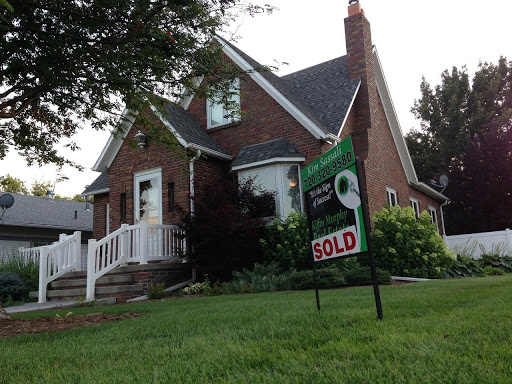Buying a house is exciting. However, when you’re a first-time homebuyer, the process can seem intimidating. Whether you’re moving to the suburbs from the city or you finally have enough money to purchase your own house, there are a few things you have to do before you can start packing.
Buying a house is one of the most, if not the most, expensive purchases you’ll make in your life, so it’s important that you know what to expect. In this guide, we’ll give you all of the information you need to know to begin the journey of buying your first house.
Buying Your First House
Most people go through the house buying process through the same steps because it makes the process easier. While you may have leased a building or a home before, purchasing a house is much different.
Understand the Costs
As mentioned, buying a house is expensive. There are tons of costs involved that you might not know about.
Down Payment
Most people are familiar with the down payment. This is a set amount that you pay upfront in order to get approved for a mortgage. While there are loans available allowing you to put down as little as 3.5% as a first-time homebuyer, experts recommend putting down at least 20% of the home’s total cost so that you can save money in the long run.
Closing Costs
Closing costs are the fees you pay to finalize your mortgage. Depending on the agreement, the home seller may pay a portion of your closing costs.
Move-in Expenses
After you purchase your house, you’ll need additional money to move in, including money for repairs, upgrades, and furnishings.
Decide How Much You Can Afford

There are a number of ways to decide how much house you can afford, with lenders from every state offering affordability calculators. All you have to do is give them information like your income and how much debt you pay each month so that they can determine how much you can afford. Typically, you can afford a house that’s two-to-three times your yearly income.
Get Pre-approved for a Mortgage
A mortgage pre-approval is a prequalification for a loan of a certain value. The pre-approval you receive will help you decide how much house you can afford by giving you a range for how much your mortgage will likely be worth.
If you’re interested in buying a house, you can reach out to a lender who will check your credit history, verify your income, and can provide you with assurances for how much your loan will be for. This pre-approval is meant to help buyers find a home that’s within their budget.
You can also ask for a letter of pre-approval so that you can show the seller that you can afford to buy the house.
Discuss What You’re Looking For
Once you’re pre-approved, consider what you’re looking for in a house. If you have a spouse, make sure that you discuss your wants and needs when it comes to what you need in your new home. For example, if one of you is working from home, you’ll likely need a spare room to act as the home office.
If you have children, you’ll need to make sure there are enough bedrooms. Also, if you have dogs, you may want to consider a house with a fenced-in yard.
Be realistic with your discussions. Most homebuyers will have to sacrifice one thing for another to find a house within their budget.
Hire a Realtor
Working with a realtor can help you find the best house available within your budget because they have insider knowledge about homes currently on the market and homes about to be on the market. Plus, they save you time so that you don’t have to spend hours searching listings for houses with the features you’re looking for. Discuss all of the things you want in a house with your realtor, and they can find the right house for you.
Find a House
Once your realtor has lined up a few homes for you to look at, it’s time for you to take tours. The process to find the right house can take months, so expect to tour a lot of homes in the future.
Get Approved for a Mortgage
Once you’ve found the house that you want to buy, it’s time to get approved for your mortgage. This process differs from the pre-approval because it requires more detailed information. A mortgage looks deeper into your income and credit history to determine just how much a lender would be willing to give you. You can get a higher mortgage by putting more money down on the house as well.
Your lender will ask you for documentation about income, including pay stubs and tax returns, run a credit check, and verify your identity. You’ll also need to report your monthly debt, including school loans, auto loans, and more.
Make an Offer
Once you’ve been approved for your mortgage, you’ll make an offer on the house you chose. This is where working with a realtor comes in handy. Most people don’t know how to go about making an offer or dealing with the paperwork when buying a house. A realtor can handle all of this for you and let you know the chances of your offer being accepted.
Your realtor can also work with the home sellers’ realtor when it comes to negotiations if you want to try to negotiate a better deal or ask that the seller pays a percentage of the closing costs.
Do a House Inspection
Part of the negotiations may include a home inspection so that you can ensure that you’re paying the right amount for the house. A professional will come in and inspect the home, including when the last time the furnace was repaired or replaced, checking the plumbing, and ensuring there’s no structural damage. If the inspection comes back with bad news, you may be able to get more money off the asking price or make the current homeowners pay for repairs before you agree to purchase the house.
Finalize the Deal
Your realtor or the realtor of the current homeowners will finalize the deal and ask you to sign the paperwork. Everything that you’re signing will be thoroughly explained to you so that you don’t get caught signing an agreement you know nothing about.
Move Into Your New Home
Congratulations! You’re now a homeowner, and it’s time to start planning your moving process.


